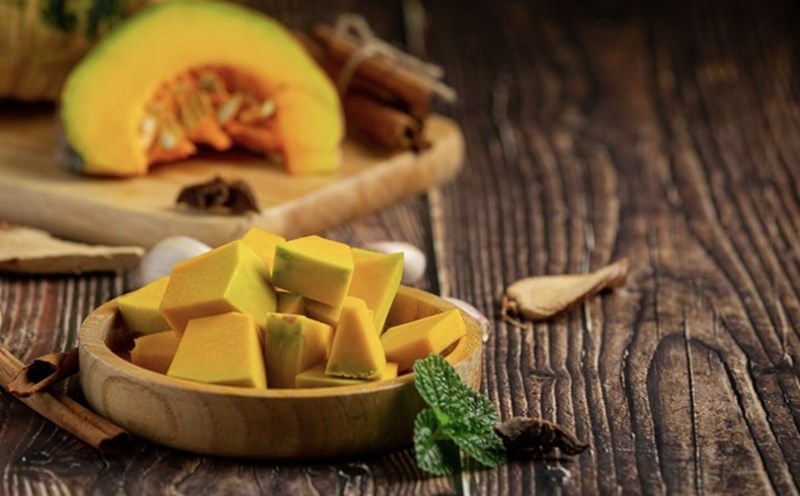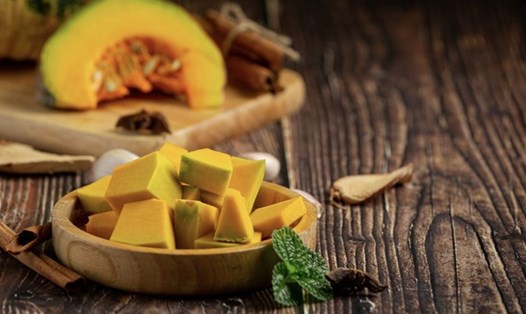Maximize nutrients released from pumpkin seeds
Pumpkin seeds have long been known as a rich source of magnesium, zinc and iron. However, according to nutritionists, when eating whole nuts, the body may have difficulty fully absorbing these substances.
Ms. Michelle Routhenstein - Master, Cardiovascular Nutritionist at EntirelyNourished.com (USA) - said: "Milling pumpkin seeds helps digestive enzymes access the inside of the seeds more easily, thereby making the body absorb minerals better and digest more easily".
Pumpkin seeds contain phytic acid, a compound that can trap minerals, making them difficult to absorb. According to Ms. Janelle Connell - a nutritionist at Viome (USA), crushing in small amounts, especially when combined with soaking or lightly roasting, can reduce phytic acid levels and improve nutrient absorption.
Helps digestion improve and belly is lighter
Small ground pumpkin seeds are not only easy to absorb protein and healthy fats, but are also gentler for the intestines. People who often feel bloated and indigestion when eating whole grains can feel the noticeable difference.
For people with dental problems or poor chewing, ground pumpkin seeds help digestion easier while still retaining the fiber needed for the intestines, says Connell.
Thanks to that, you still take advantage of the benefits of fiber to help laxatives, reduce constipation but not cause a feeling of heaviness or discomfort.
Another big plus is that ground pumpkin seeds help intestinal probiotics work better. Bringing helps fiber and polyphenols to be easily absorbed by beneficial bacteria, thereby increasing the production of short-chain fatty acids, a compound important for gut health and metabolism, says Connell.
These compounds also help boost immunity, improve digestion and support a healthy weight, which is very useful in modern family health care.
You do not need special equipment to apply this tip. Just use a blender or coffee blender, a few seconds later you will have nutritious pumpkin seed powder. You can add 1-2 tablespoons to yogurt, oatmeal, smoothies or even sprinkle them on soup.
Ms. Connell recommends grinding the small pieces and storing them in an airtight container, refrigerating or freezing them to limit the oxidation process. Healthy fats in nuts are easily broken down, so proper storage helps preserve their flavor and nutritional value, she says.











